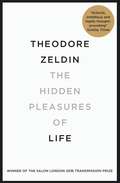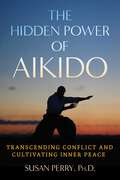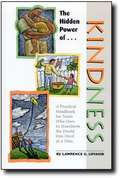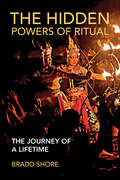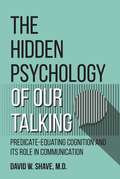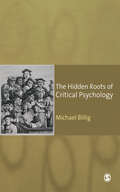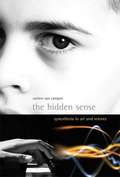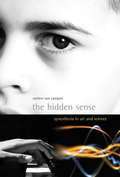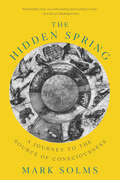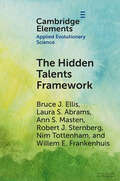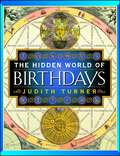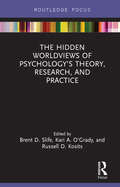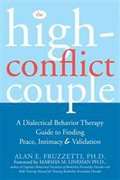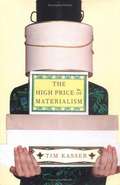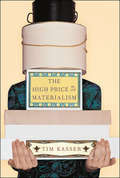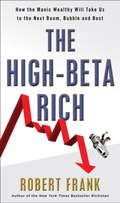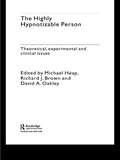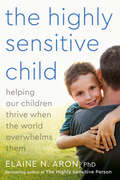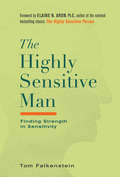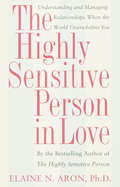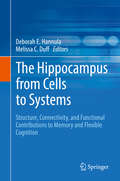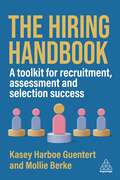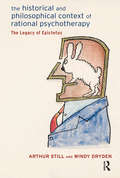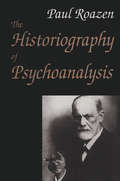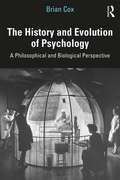- Table View
- List View
The Hidden Pleasures of Life: A New Way of Remembering the Past and Imagining the Future
by Theodore ZeldinThe story of a search for a new art of living. How can one escape from work colleagues who are bores and from organisations that thrive on stress? What new priorities can people give to their private lives? When the romantic ideal is disappointing, how else can affections be cultivated? If only a few can become rich, what substitute is there for dropping out? If religions and nations disagree, what other outcomes are possible beyond strife or doubt? Where there is too little freedom, what is the alternative to rebellion? When so much is unpredictable, what can replace ambition? Questions include: What is the great adventure of our time? What is a wasted life? How can people lose their illusions about themselves? What alternatives are there to being a rebel? What can the poor tell the rich? What could the rich tell the poor? How many ways of committing suicide are there? How can an unbeliever understand a believer? How can a religion change? How can prejudices be overcome? How can one think about the future, without trying to predict it or worrying about it? Is ridicule the most effective form of non-violent protest? How does one acquire a sense of humour? What stops people feeling completely at home in their own country? How many nations can one love at the same time? Why do so many people feel unappreciated, unloved and not fully alive? How else might women and men treat one another? What can replace the shortage of soul-mates? Is another kind of sexual revolution achievable? What can artists aim for beyond self-expression? What is more interesting than becoming a leader? What is the point of working so hard? Are there more amusing ways of earning a living? What else can one do in a hotel? What more can the young ask of their elders? Is remaining young at heart enough to avoid becoming old? What is worth knowing? What does it mean to be alive? Where can one find nourishment for the mind?
The Hidden Power of Aikido: Transcending Conflict and Cultivating Inner Peace
by Susan Perry• Explains Aikido solutions for peacefully resolving difficulties that arise with intimidating and unpredictable people, those who are stubborn or don&’t listen, insincere people who want something from you, and chaotic situations • Presents Aikido&’s step-by-step protocol for developing the receptiveness of the beginner&’s mind and deescalating potentially violent or dangerous situations • Shares stories of how Aikido helped the author transform interpersonal difficulties into peaceful interactions In addition to the physical practice, the modern martial art of Aikido also offers profound principles for transforming interpersonal conflict into peaceful interaction. Illuminating the inner philosophical and practical aspects of Aikido, forty-seven-year Aikido practitioner and 6th-degree blackbelt Susan Perry, Ph.D., uses personal stories of joy, achievement, and hardship to demonstrate real-life applications of the transformational principles of Aikido. She introduces what Aikido is and where it comes from, providing a brief biography of its founder, Morihei Ueshiba. She explains in detail how Aikido helped her resolve difficulties at work, as a student, and as a teacher/sensei. Through each story shared, the author offers a glimpse of the beginner&’s mind in action, the key to changing even the violent energy of an attack into peaceful interaction. Presenting Aikido&’s step-by-step protocol for developing the receptiveness of the beginner&’s mind, a state essential to personal transformation, Perry explains how distraction and timing can be used to deescalate potentially violent or dangerous situations. She discusses the founder&’s philosophy of conflict, showing how Aikido can help peacefully resolve difficulties that arise with pushy, intimidating, and unpredictable people, those who are stubborn or don&’t listen, insincere people who want something from you, and chaotic situations. She explains how a deepening practice of the martial art leads to an aiki state of inner peace, fusion, and boundless joy. Revealing how Aikido can help you face your fears and develop your heart and soul, this book shows how this martial art helps you embrace change, cultivate a strong center, and ultimately live a joyful life of engagement with the world.
The Hidden Power of Kindness: A Practical Handbook for Souls Who Dare to Transform the World, One Deed at a Time
by Lawrence G. LovasikIf you want to make progress in the spiritual life, don't miss these insights: they'll give you years of solid help to grow in charity and truly transform your corner of the world.
The Hidden Powers of Ritual: The Journey of a Lifetime
by Bradd ShoreAn illuminating overview of the development, benefits, and importance of ritual in everyday life, written by a leading cognitive anthropologist.The Hidden Powers of Ritual is an engaging introduction to ritual studies that presents ritual as an evolved form of human behavior of almost unimaginable significance to our species. Every day across the globe, people gather to share meals, brew caffeinated beverages, or honor their ancestors. In this book, Bradd Shore, a respected anthropologist, reaches beyond familiar &“big-R&” rituals to present life&’s humbler, overshadowed moments, exploring everything from the Balinese pelebon to baseball to family Zoom sessions in the age of Covid to the sobering reenactment rituals surrounding the Moore&’s Ford lynchings. In each ritual, Shore shows how our capacity to ritualize behavior is a remarkable part of the human story.Encompassing both the commonly unlabeled &“interaction rituals&” studied by sociologists and the symbolically elaborated sacred rituals of religious studies, Shore organizes his conception around detailed case studies drawn from international research and personal experience, weaving scholarship with a memoir of a life encompassed by ritual. A probing exploration that matches breadth with accessibility, The Hidden Powers of Ritual is a provocative contribution to ritual theory that will appeal to a wide range of readers curious about why these unique repetitive acts matter in our lives.
The Hidden Psychology of Our Talking: Predicate-Equating Cognition and its Role in Communication
by David W. ShaveThis book introduces the concept of the 'unconscious entity' and reveals it as the most important concept in psychology. The book begins by presenting that the basic emotional need of humans is the need to be emotionally comfortable. Anything, that makes us emotionally uncomfortable, is a frustration of our basic emotional need, that then produces anger. The bigger the frustration, the more anger is produced. If that anger is not immediately expressed, it becomes repressed, and then stored in our mind as 'unconscious entity,' making any unwanted feeling we have, more unwanted. Unconscious entity arises from our unexpressed anger. It manifests itself as unwanted feelings. The feeling we least want is the very feeling most likely to be produced by our unexpressed anger. To reduce the intensity of an unwanted feeling, or to remove it completely, we must convert the unconscious entity, in our mind, back to expressed anger, which we can do, unconsciously, when we talk to a listener about what we dislike, or hate. What we dislike, or hate, will be unconsciously equated with an unconsciously perceived part of our listener. The anger is then directly expressed to that part and will be metaphorically hidden. This reveals a new dimension in human communication that has the capacity to cure psychogenic illnesses.Anger, arising from our stored unconscious entity, can also be reduced when it is expressed, inwardly, to ourselves, as in any hard work, exercise, or self-punishment, or by punishment inflicted by others. Reducing our unconscious entity makes us less emotionally uncomfortable, which is the same as making us more emotionally comfortable. That meets our basic emotional need indirectly.This book shows how we unconsciously hide our expressed anger, in our talking to a perceived listener. We do it by utilizing unconscious predicate-equating that this book shows, for the first time anywhere, is a prominent cognition of humans, and not limited to, or being diagnostic of, schizophrenia, as psychology and psychiatry now believe. It reveals the hidden and real cause for homelessness, PTSD, pedophilia, and why people senselessly kill as in mass killings.This book is a 'must read,' not only for anyone associated, in any way, with psychology or psychiatry, but anyone interested in the origin of their own unwanted feelings, and wanting to rid themselves of them.
The Hidden Roots of Critical Psychology: Understanding the Impact of Locke, Shaftesbury and Reid
by Michael Billig`Billig's is a fascinating work of brilliant scholarship. It is written in an elegant style, spiced with humour, and gives one the feeling that it was a labour of love. It can be recommended without reservation' - Journal of Community and Applied Social Psychology `This is a quite extraordinary and original book. Billig has managed seamlessly to interweave History of Philosophy, History of Psychology, Critical Psychology and a deep grasp of the social nature of language and, moreover, do so in a very readable fashion' - Graham Richards, Formerly Professor of History of Psychology, Staffordshire University and Director of the British Psychological Society History of Psychology Centre, London `I can't quite capture how much I enjoyed this book. In beautiful, witty prose and through exemplary scholarship, Billig has produced an historical work that engages with profoundly important ideas not just for contemporary critical psychology but for psychology in general. Books as good as this are rare' - Alan Collins, Senior Lecturer in Psychology, Lancaster University Today new forms of critical psychology are challenging the cognitive revolution that has dominated psychology for the past three decades. This book explores the historical roots of these new psychologies. It demonstrates that their ideas are not quite as new as is often supposed. In the early modern period, thinkers like the Earl of Shaftesbury and Thomas Reid reacted against Locke's cognitive psychology in ways that were surprisingly modern, if not post-modern. However, until now, they have been virtually written out of psychology's history. It is now time to recognize the great originality of their psychological thinking. Writing in a non-technical style, Michael Billig seeks to overturn the dominant views of psychology's history. In so doing, he gives a fascinating account of the times, bringing psychology's hidden past vividly back to life.
The Hidden Sense
by Cretien Van CampenWhat is does it mean to hear music in colors, to taste voices, to see each letter of the alphabet as a different color? These uncommon sensory experiences are examples of synesthesia, when two or more senses cooperate in perception. Once dismissed as imagination or delusion, metaphor or drug-induced hallucination, the experience of synesthesia has now been documented by scans of synesthetes' brains that show "crosstalk" between areas of the brain that do not normally communicate. In The Hidden Sense, Cretien van Campen explores synesthesia from both artistic and scientific perspectives, looking at accounts of individual experiences, examples of synesthesia in visual art, music, and literature, and recent neurological research. Van Campen reports that some studies define synesthesia as a brain impairment, a short circuit between two different areas. But synesthetes cannot imagine perceiving in any other way; many claim that synesthesia helps them in daily life. Van Campen investigates just what the function of synesthesia might be and what it might tell us about our own sensory perceptions. He examines the experiences of individual synesthetes -- from Patrick, who sees music as images and finds the most beautiful ones spring from the music of Prince, to the schoolgirl Sylvia, who is surprised to learn that not everyone sees the alphabet in colors as she does. And he finds suggestions of synesthesia in the work of Scriabin, Van Gogh, Kandinsky, Nabokov, Poe, and Baudelaire. What is synesthesia? It is not, van Campen concludes, an audiovisual performance, a literary technique, an artistic trend, or a metaphor. It is, perhaps, our hidden sense -- a way to think visually; a key to our own sensitivity.
The Hidden Sense: Synesthesia in Art and Science (Leonardo)
by Cretien Van CampenThe uncommon sensory perceptions of synesthesia explored through accounts of synesthetes' experiences, the latest scientific research, and suggestions of synesthesia in visual art, music, and literature. What is does it mean to hear music in colors, to taste voices, to see each letter of the alphabet as a different color? These uncommon sensory experiences are examples of synesthesia, when two or more senses cooperate in perception. Once dismissed as imagination or delusion, metaphor or drug-induced hallucination, the experience of synesthesia has now been documented by scans of synesthetes' brains that show "crosstalk" between areas of the brain that do not normally communicate. In The Hidden Sense, Cretien van Campen explores synesthesia from both artistic and scientific perspectives, looking at accounts of individual experiences, examples of synesthesia in visual art, music, and literature, and recent neurological research. Van Campen reports that some studies define synesthesia as a brain impairment, a short circuit between two different areas. But synesthetes cannot imagine perceiving in any other way; many claim that synesthesia helps them in daily life. Van Campen investigates just what the function of synesthesia might be and what it might tell us about our own sensory perceptions. He examines the experiences of individual synesthetes—from Patrick, who sees music as images and finds the most beautiful ones spring from the music of Prince, to the schoolgirl Sylvia, who is surprised to learn that not everyone sees the alphabet in colors as she does. And he finds suggestions of synesthesia in the work of Scriabin, Van Gogh, Kandinsky, Nabokov, Poe, and Baudelaire. What is synesthesia? It is not, van Campen concludes, an audiovisual performance, a literary technique, an artistic trend, or a metaphor. It is, perhaps, our hidden sense—a way to think visually; a key to our own sensitivity.
The Hidden Spring: A Journey To The Source Of Consciousness
by Mark SolmsA revelatory new theory of consciousness that returns emotions to the center of mental life. For Mark Solms, one of the boldest thinkers in contemporary neuroscience, discovering how consciousness comes about has been a lifetime’s quest. Scientists consider it the "hard problem" because it seems an impossible task to understand why we feel a subjective sense of self and how it arises in the brain. Venturing into the elementary physics of life, Solms has now arrived at an astonishing answer. In The Hidden Spring, he brings forward his discovery in accessible language and graspable analogies. Solms is a frank and fearless guide on an extraordinary voyage from the dawn of neuropsychology and psychoanalysis to the cutting edge of contemporary neuroscience, adhering to the medically provable. But he goes beyond other neuroscientists by paying close attention to the subjective experiences of hundreds of neurological patients, many of whom he treated, whose uncanny conversations expose much about the brain’s obscure reaches. Most importantly, you will be able to recognize the workings of your own mind for what they really are, including every stray thought, pulse of emotion, and shift of attention. The Hidden Spring will profoundly alter your understanding of your own subjective experience.
The Hidden Talents Framework: Implications for Science, Policy, and Practice (Elements in Applied Evolutionary Science)
by Robert J. Sternberg Ann S. Masten Laura S. Abrams Bruce J. Ellis Nim Tottenham Willem E. FrankenhuisAlthough early-life adversity can undermine healthy development, an evolutionary-developmental perspective implies that children growing up in harsh environments will develop intact, or even enhanced, skills for solving problems in high‐adversity contexts (i.e., 'hidden talents'). This Element situates the hidden talents model within a larger interdisciplinary framework. Summarizing theory and research on hidden talents, it proposes that stress-adapted skills represent a form of adaptive intelligence enabling individuals to function within the constraints of harsh environments. It discusses potential applications of this perspective to multiple sectors concerned with youth from harsh environments, including education, social services, and juvenile justice, and compares the hidden talents model with contemporary developmental resilience models. The hidden talents approach, it concludes, offers exciting directions for research on childhood adversity, with translational implications for leveraging stress-adapted skills to more effectively tailor education, jobs, and interventions to fit the needs of individuals from a diverse range of life circumstances.
The Hidden World of Birthdays
by Judith TurnerUnlock the secrets of your personality with this captivating guide by world-renowned psychic Judith Turner that combines astrology, psychology, and psychic insights to reveal the hidden truths linked to your birth date.Have you ever considered what your birthday truly signifies? It is not just a date on the calendar—it&’s a treasure trove of insights into your identity, personality, and potential. Packed with personalized insights, this enlightening guide offers a fresh perspective on who you are and who you can become. Did you know that you have a specific flower, gem, and fragrance specifically tied to you? Are you aware of your lucky numbers, the name of your guardian angel, or even the ideal day of the week to request a raise? Each person carries unique traits, and every birthday is a reflection of the individual born on that day. With The Hidden World of Birthdays, you&’ll be able to: · Discover the gems and stones that align with your energy, bringing luck, strength, and encouragement. · Learn which colors enhance your charisma and charm, soothing your spirit during life&’s challenges. · Explore the realm of luck with personalized numbers, months, and days of the week that resonate with your life&’s journey. · Uncover the most compatible astrological signs for your relationships and partnerships. · Meet your spiritual guides—your star, angel, guardian angel, and spiritual stone—that enrich your life and guide you on your path. But that&’s not all. Each birthday features an exclusive section called &“Judith&’s Insight,&” offering personalized guidance to help you make informed life choices. These insights not only reveal who you are but also the incredible potential within, illuminating the paths you can take toward personal growth and fulfillment. With The Hidden World of Birthdays, you'll embark on a journey of self-discovery, gaining invaluable insights that can transform your understanding of yourself and your place in the universe. Ready to uncover the hidden truths of your birthday? Keep this book close—it&’s timeless, revealing new insights each time you open it!
The Hidden Worldviews of Psychology’s Theory, Research, and Practice (Advances in Theoretical and Philosophical Psychology)
by Brent D. Slife Kari A. O'Grady Russell D. KositsBy revealing underlying assumptions that influence the field of psychology, The Hidden Worldviews of Psychology’s Theory, Research, and Practice challenges psychologists to reconsider the origins of ideas they may take as psychological truths. Worldviews, or the systems of assumptions that provide a framework for psychological thinking, have great influence on psychological theory, research, and practice. This book attempts to correct assumptions by describing the worldviews that have shaped psychological theory, practice, and research and demonstrating how taking worldviews into account can greatly advance psychology as a whole.
The High Conflict Couple: A Dialectical Behavior Therapy Guide To Finding Peace, Intimacy, And Validation
by Alan E. FruzzettiIf you are part of a "high-conflict" couple, you need to get control of your emotions first, to stop making things worse, and only then work on building a better relationship. The High-Conflict Couple adapts the powerful techniques of dialectical behavior therapy (DBT) into skills you can use to tame out-of-control emotions that flare up in your relationship. Using mindfulness and distress tolerance techniques, you'll learn how to deescalate angry situations before they have a chance to explode into destructive fights. Other approaches will help you disclose your fears, longings, and other vulnerabilities to your partner and validate his or her experiences in return. You'll discover ways to manage problems with negotiation, not conflict, and to find true acceptance and closeness with the person you love the most.
The High Price of Materialism
by Tim KasserTim Kasser offers a scientific explanation of how our contemporary culture of consumerism and materialism affects our everyday happiness and psychological health.
The High Price of Materialism
by Tim KasserA study of how materialism and consumerism undermine our quality of life.In The High Price of Materialism, Tim Kasser offers a scientific explanation of how our contemporary culture of consumerism and materialism affects our everyday happiness and psychological health. Other writers have shown that once we have sufficient food, shelter, and clothing, further material gains do little to improve our well-being. Kasser goes beyond these findings to investigate how people's materialistic desires relate to their well-being. He shows that people whose values center on the accumulation of wealth or material possessions face a greater risk of unhappiness, including anxiety, depression, low self-esteem, and problems with intimacy—regardless of age, income, or culture.Drawing on a decade's worth of empirical data, Kasser examines what happens when we organize our lives around materialistic pursuits. He looks at the effects on our internal experience and interpersonal relationships, as well as on our communities and the world at large. He shows that materialistic values actually undermine our well-being, as they perpetuate feelings of insecurity, weaken the ties that bind us, and make us feel less free. Kasser not only defines the problem but proposes ways we can change ourselves, our families, and society to become less materialistic.
The High-Beta Rich
by Robert Frankhigh-beta rich (hi be'ta rich) 1. a newly discovered personality type of the America upper class prone to wild swings in wealth. 2. the winners (and occasional losers) in an economy that creates wealth from financial markets, asset bubbles and deals. 3. derived from the Wall Street term "high-beta," meaning highly volatile or prone to booms and busts. 4. an elite that's capable of wreaking havoc on communities, jobs, government finances, and the consumer economy. 5. a new Potemkin plutocracy that hides a mountain of debt behind the image of success, and is one crisis away from losing their mansions, private jets and yachts.The rich are not only getting richer, they are becoming more dangerous. Starting in the early 1980s the top one percent broke away from the rest of us to become the most unstable force in the economy. An elite that had once been the flat line on the American income charts - models of financial propriety - suddenly set off on a wild ride of economic binges. Not only do they control more than a third of the country's wealth, their increasing vulnerability to the booms and busts of the stock market wreak havoc on our consumer economy, financial markets, communities, employment opportunities, and government finances. Robert Frank's insightful analysis provides the disturbing big picture of high-beta wealth. His vivid storytelling brings you inside the mortgaged mansions, blown-up balance sheets, repossessed Bentleys and Gulfstreams, and wrecked lives and relationships:* How one couple frittered away a fortune trying to build America's biggest house --90,000 square feet with 23 full bathrooms, a 6,000 square foot master suite with a bed on a rotating platform--only to be forced to put it on the market because "we really need the money". * Repo men who are now the scavengers of the wealthy, picking up private jets, helicopters, yachts and racehorses - the shiny remains of a decade of conspicuous consumption financed with debt, asset bubbles, "liquidity events," and soaring stock prices. * How "big money ruins everything" for communities such as Aspen, Colorado whose over-reliance on the rich created a stratified social scene of velvet ropes and A-lists and crises in employment opportunities, housing, and tax revenues. * Why California's worst budget crisis in history is due in large part to reliance on the volatile incomes of the state's tech tycoons. * The bitter divorce of a couple who just a few years ago made the Forbes 400 list of the richest people, the firing of their enormous household staff of 110, and how one former spouse learned the marvels of shopping at Marshalls, filling your own gas tank, and flying commercial. Robert Frank's stories and analysis brilliantly show that the emergence of the high-beta rich is not just a high-class problem for the rich. High-beta wealth has national consequences: America's dependence on the rich + great volatility among the rich = a more volatile America. Cycles of wealth are now much faster and more extreme. The rich are a new "Potemkin Plutocracy" and the important lessons and consequences are brought to light of day in this engrossing book.From the Hardcover edition.
The Highly Hypnotizable Person: Theoretical, Experimental and Clinical Issues
by Richard J. Brown Michael Heap David A. OakleyIt is commonly known that some individuals are more easily hypnotized than others. What is less clear is why, and what can be learnt from these individual differences for hypnosis as a whole. The Highly Hypnotizable Person is the first book to present an up-to-date, comprehensive overview of what research and evidence there is for the existence and features of highly hypnotisable people. The Highly Hypnotizable Person draws on research findings from cognitive, developmental and clinical psychology and from neuropsychology and neurophysiology. Leading authorities on hypnosis provide a comprehensive account of what is known and understood about this phenomenon and treatment procedure, and in particular, the nature and implications of high susceptibility.
The Highly Sensitive Child: Helping Our Children Thrive When the World Overwhelms Them
by Elaine AronThe bestselling author and psychologist whose books have topped 240,000 copies in print now addresses the trait of “high sensitivity” in children–and offers a breakthrough parenting guidebook for highly sensitive children and their caregivers.<P> With the publication of The Highly Sensitive Person, Elaine Aron became the first person to identify the inborn trait of “high sensitivity” and to show how it affects the lives of those who possess it. Up to 20 percent of the population is born highly sensitive, and now in The Highly Sensitive Child, Aron shifts her focus to highly sensitive children, who share the same characteristics as highly sensitive adults and thus face unique challenges as they grow up. <P> Rooted in Aron’s years of experience as a psychotherapist and her original research on child temperament, The Highly Sensitive Child shows how HSCs are born deeply reflective, sensitive to the subtle, and easily overwhelmed. These qualities can make for smart, conscientious, creative children, but with the wrong parenting or schooling, they can become unusually shy or timid, or begin acting out. Few parents and teachers understand where this behavior comes from–and as a result, HSCs are often mislabeled as overly inhibited, fearful, or “fussy,”or classified as “problem children” (and in some cases, misdiagnosed with disorders such as Attention Deficit Disorder). But raised with proper understanding and care, HSCs are no more prone to these problems than nonsensitive children and can grow up to be happy, healthy, well-adjusted adults. <P> In this pioneering work, parents will find helpful self-tests and case studies to help them understand their HSC, along with thorough advice on:<P> • The challenges of raising an highly sensitive child<P> • The four keys to successfully parenting an HSC<P> • How to soothe highly sensitive infants<P> • Helping sensitive children survive in a not-so-sensitive world<P> • Making school and friendships enjoyable<P> With chapters addressing the needs of specific age groups, from newborns through teens, The Highly Sensitive Child delivers warmhearted, timely information for parents, teachers, and the sensitive children in their lives.
The Highly Sensitive Man: How Mastering Natural Insticts, Ethics, and Empathy Can Enrich Men's Lives and the Lives of Those Who Love Them
by Tom FalkensteinBestselling classic and global phenomenon The Highly Sensitive Person has helped millions of people around the world. Now Elaine Aron&’s colleague offers help and hope for men with high sensitivity and the unique problems they face. Highly sensitive people think deeply, empathize instinctively, and tend to behave in an ethical way that benefits everyone. Today, with the negative effects of &“toxic masculinity&” and aggressive behavior in evidence all around us, we need highly sensitive people—especially men—more than ever. Yet for men in particular, being highly sensitive brings distinct challenges, such as gender stereotypes that portray them as too emotional or not &“manly&” enough. Cognitive behavioral psychotherapist Tom Falkenstein offers the first psychological guide that specifically addresses highly sensitive men and those who care about them, and explores the unique advantages and obstacles they face. Drawing from his training with pioneer in the field Dr. Elaine Aron, and his own groundbreaking work, Falkenstein incorporates the most up-to-date research on high sensitivity—what it is and isn&’t—how it relates to male identity, and provides one-of-a-kind advice and practical tools. Including an illuminating conversation with Dr. Aron, The Highly Sensitive Man is an invaluable book that will help redefine masculinity and reveal how high sensitivity can enrich men&’s lives, their communities, and the lives of those who love them. &“A book that cracks open the conversation about how men can blend their strength, sensitivity and unique gifts into a more modern and whole definition of what it is to be a man.&” —Alanis Morissette, singer, songwriter, activist &“Rooted in the rigorous science of sensory processing sensitivity . . . provides numerous ways we can grow into our own skins.&”—Tracy Cooper, PhD, author of Thrill!: The High Sensation Seeking Highly Sensitive Person
The Highly Sensitive Person in Love: Understanding and Managing Relationships When the World Overwhelms You
by Elaine N. AronDo you fall in love hard, but fear intimacy? Are you sick of being told that you are "too sensitive"? Do you struggle to respect a less-sensitive partner? Or have you given up on love, afraid of being too sensitive or shy to endure its wounds?Statistics show that 50 percent of what determines divorce is genetic temperament. And, if you are one of the 20 percent of people who are born highly sensitive, the risk of an unhappy relationship is especially high. Your finely tuned nervous system, which picks up on subtleties and reflects deeply, would be a romantic asset if both you and your partner understood you better. But without that understanding, your sensitivity is likely to be making your close relationships painful and complicated.Based on Elaine N. Aron's groundbreaking research on temperament and intimacy, The Highly Sensitive Person in Love offers practical help for highly sensitive people seeking happier, healthier romantic relationships. From low-stress fighting to sensitive sexuality, the book offers a wealth of practical advice on making the most of all personality combinations. Complete with illuminating self-tests and the results of the first survey ever done on sex and temperament, The Highly Sensitive Person in Love will help you discover a better way of living and loving.From the Trade Paperback edition.
The Hippocampus from Cells to Systems
by Deborah E. Hannula Melissa C. DuffThe hippocampus has long been considered a critical substrate in the neurobiology, neuropsychology, and cognitive neuroscience of memory. Over the past few decades, a number of ground-breaking theoretical and methodological advances have radically enhanced our understanding of the structure and function of the hippocampus and revolutionized the neuroscientific study of memory. Cutting across disciplines and approaches, these advances offer novel insights into the molecular and cellular structure and physiology of the hippocampus, the role of hippocampus in the formation, (re)consolidation, enhancement, and retrieval of memory across time and development, and permit investigators to address questions about how the hippocampus interacts, functionally and anatomically, with other neural systems in service of memory. In addition, recent investigations also suggest that the mechanistic properties and functional processing features of the hippocampus permit broader contributions to cognition, beyond memory, to the domains of attention, decision-making, language, social cognition, and a variety of other capacities that are critical for flexible cognition and behavior. These advances have profound implications for the neurobiology and cognitive neuroscience of hippocampus dependent cognition and for the numerous psychiatric and neurological diseases and disorders for which hippocampal pathology is a hallmark such as Alzheimer's disease and schizophrenia. The goal of this book is to bring together in a single source an integrated review of these advances providing state of the art treatment on the structure and function of the hippocampus. Contributors will examine the hippocampus from a variety of levels (from cells to systems) using a wide range of methods (from neurobiological approaches in non-human animals to neuroimaging and neuropsychological work in humans).
The Hiring Handbook: A Toolkit for Recruitment, Assessment, and Selection Success
by Kasey Harboe Guentert Mollie BerkeHow can I improve the quality of my hires? What's the best way to structure interviews and how can I ensure that the questions I ask provide the information I need? How can I make sure that hiring decisions are based on data and not judgements?The Hiring Handbook is a must-have guide for HR professionals, managers and small business owners looking to hire with confidence. This practical toolkit walks you through every stage of the hiring process-from defining job requirements to designing structured interviews-so you can consistently identify and select the best candidates.It covers how to conduct job analyses to pinpoint the skills and attributes that truly matter, write compelling job descriptions that attract top talent, and design structured interviews that lead to fair and accurate hiring decisions. The book also explains how to craft strong, predictive interview questions, evaluate candidates objectively, and minimize bias by adopting a data-driven approach to hiring. Written by hiring experts with deep assessment and selection expertise from global firms like Korn Ferry, Airbnb, and Meta, The Hiring Handbook equips you with the tools to build high-performing teams and make hiring decisions that drive long-term success.
The Historical and Philosophical Context of Rational Psychotherapy: The Legacy of Epictetus
by Windy Dryden Arthur StillThis book brings together the papers written by the authors over the last fifteen years on the historical and philosophical foundations of Albert Ellis' Rational Psychotherapy (later Rational Emotive Behavior Therapy, REBT) and its relationship to Stoicism, especially the later practical form represented by Epictetus. It goes beneath the well known similarities between Stoic "spiritual exercises" and modern psychotherapy, to look at the cause of these similarities. These lie in the conceptual continuities that connect the Stoics and other ancient philosophies with the modern cultural framework underlying psychotherapy.
The Historiography of Psychoanalysis
by Paul RoazenToday Sigmund Freud's legacy seems as hotly contested as ever. He continues to attract fanaticism of one kind or another. If Freud might be disappointed at the failure of his successors to confirm many of his so-called discoveries he would be gratified by the transforming impact of his ideas in contemporary moral and ethical thinking. To move from the history of psychoanalysis onto the more neutral ground of scholarly inquiry is not a simple task. There is still little effort to study Freud and his followers within the context of intellectual history. Yet in an era when psychiatry appears to be going in a different direction from that charted by Freud, his basic point of view still attracts newcomers in areas of the world relatively untouched by psychoanalytic influence in the past. It is all the more important to clarify the strengths and the limitations of Freud's approach.Roazen begins by delving into the personality of Freud, and reassesses his own earlier volume, Freud and His Followers. He then examines "Freud Studies" in the nature of Freudian appraisals and patients. He examines a succession of letters between Freud and Silberstein; Freud and Jones; Anna Freud and Eva Rosenfeld; James Strachey and Rupert Brooke. Roazen includes a series of interviews with such personages as Michael Balint, Philip Sarasin, Donald W. Winnicott, and Franz Jung. He explores curious relationships concerning Lou Andreas-Salome, Tola Rank, and Felix Deutsch, and deals with biographies of Freud's predecessors, Charcot and Breuer, and contemporaries including Menninger, Erikson, Helene Deutsch, and a number of followers. Freud's national reception in such countries as Russia, America, France, among others is examined, and Roazen surveys the literature relating to the history of psychoanalysis. Finally, he brings to light new documents offering fresh interpretations and valuable bits of new historical evidence.This brilliantly constructed book explores the vagaries of Freud's impact over the twentieth century, including current controversial issues related to placing Freud and his theories within the historiography of psychoanalysis. It will be of interest to psychoanalysts, intellectual historians, and those interested in the history of ideas.
The History and Evolution of Psychology: A Philosophical and Biological Perspective
by Brian D. CoxThis book discusses key figures in history in the context of their time, takes students on a carefully-formulated, chronological journey through the build-up of psychology from ancient times to the present, and seeks to draw students into the way science is done, rather than merely presenting them with historical fact. Students will learn not only the ‘what’, but the ‘why’ of the history of psychology and will acquire the necessary background historical material to fully understand those concepts. Organized around a series of paradigms—a shift from scholasticism to rationalism or empiricism, and a shift from idealism to materialism—the book seeks to portray psychology as an on-going, evolving process, rather than a theory.
